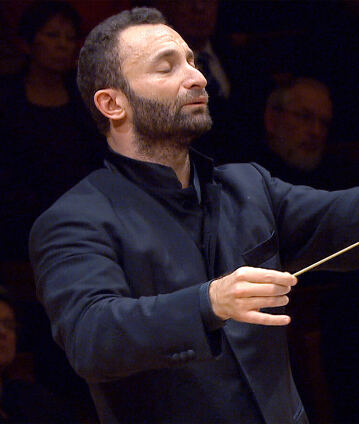Kirill Petrenko conducts Scriabin, Stravinsky and Stephan

It is one of the most exciting periods of musical history: the transition from the opulent music of late-Romanticism to early Modernism with its concentrated energy. Kirill Petrenko portrayed this era with works by Rudi Stephan, Alexander Scriabin and Igor Stravinsky, the highlight of which was Scriabin’s monumental Poème de l’extase in which, according to one critic, Pertrenko presented “an alert mind and his famous will for clear contours”.
He was regarded as one of the most promising composers of his generation: born in Worms in 1887, Rudi Stephan constructed a “colour piano” at an early age. His development as a composer was shaped not only by his studies with Rudolf Louis, the leading representative of the so-called Munich School, but also by his engagement with the work of contemporary composers such as Schoenberg, Debussy, Stravinsky and Scriabin. Stephan, who died fighting in the First World War at the age of 28, left a small but impressive oeuvre, including his Music for Violin and Orchestra and his Music for Orchestra. Both works show him stylistically as a bridge between late Romanticism and Modernism. In this concert, the soloist in the Music for Violin and Orchestra is the 1st concertmaster of the Berliner Philharmoniker, Daniel Stabrawa.
The same could also be said about the Russian Alexander Scriabin. His mystical and gloriously excessive orchestral piece Le Poème de l’extase is an orgiastic rush of sound, which is typical of many late Romantic compositions. However, his harmonies already indicated he was moving on from the then exhausted major-minor tonality.
Scriabin’s compatriot Igor Stravinsky, however, deliberately broke with the traditions of the 19th century, employing a totally anti-Romantic musical language. This is also evident in his Symphony of Psalms which uses Latin psalm verses as its basis. With this setting, Stravinsky explained he wanted to address those composers “who had misused these authoritative verses as a peg to hang their own lyrical and sentimental feelings on.”
© 2012 Berlin Phil Media GmbH
Related interviews
Artists
Our recommendations
- Christian Thielemann conducts Brahms’s “Deutsches Requiem”
- Daniel Harding conducts Berlioz’s “Roméo et Juliette”
- Sir Simon Rattle conducts Mahler’s Symphony No. 2
- Christian Thielemann conducts Beethoven’s “Missa solemnis”
- Kirill Petrenko with Rachmaninov’s “Francesca da Rimini”
- Kirill Petrenko conducts Schoenberg